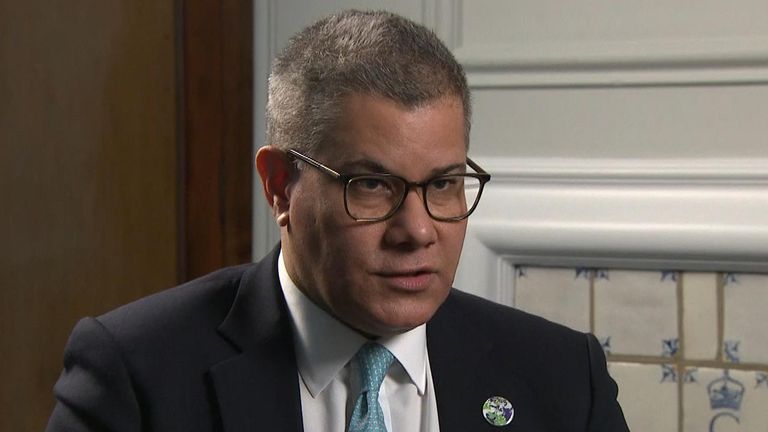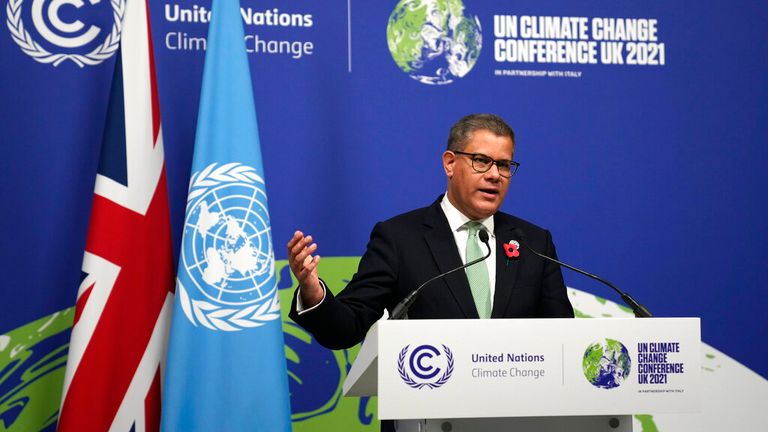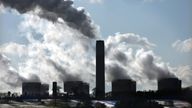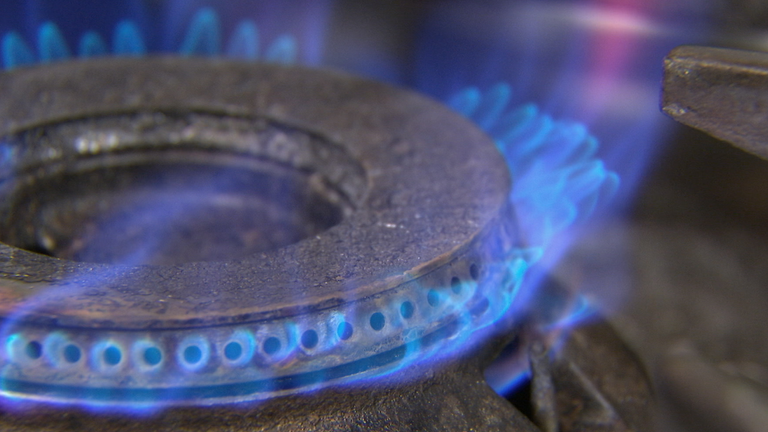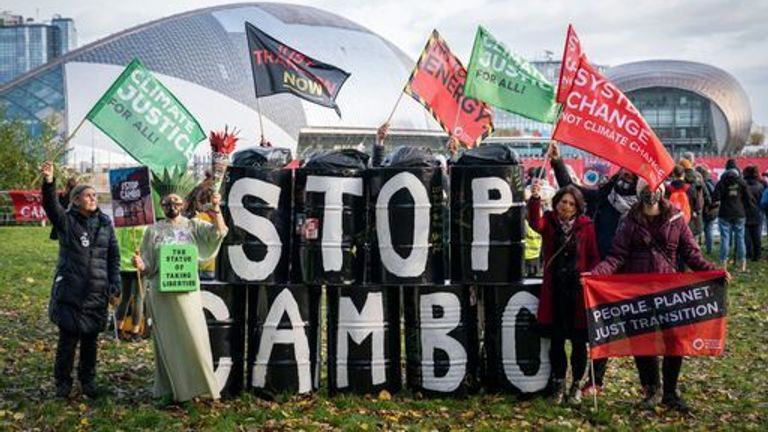Climate change: More drilling for North Sea gas is an unrealistic strategy for bringing down energy prices, Alok Sharma says
COP26 president Mr Sharma also rejects the idea that more North Sea gas would better protect the UK from any deliberate squeezing of supply by Russia. It comes after MPs who have established a 'Net Zero Scrutiny Group' call for the government to allow more drilling.
Monday 24 January 2022 18:24, UK
COP26 president Alok Sharma MP has told Sky News that extracting more gas from the North Sea is not a "realistic" strategy for bringing down energy prices for UK consumers.
MPs who have established a 'Net Zero Scrutiny Group' have been calling for the government to allow more drilling in the North Sea, arguing that it would be beneficial in terms of security and cost.
But Mr Sharma said: "Even if you were extracting more right now from the North Sea Basin, ultimately the price that's going to be generated is going to be the international wholesale gas price.
"The idea that you will suddenly change things, and that will impact the price of wholesale gas internationally, I don't think that is realistic."
Mr Sharma also rejected the idea that more North Sea gas would better protect the UK from any deliberate squeezing of supply by Russia.
He said: "What we need to be doing is more of what we have been doing, which is building forward on renewables and obviously investing in nuclear.
"I think that is the answer ultimately to all of this."
He argued that the same formula is the solution to both the cost of living crisis and reaching net-zero carbon emissions by 2050.
"I would contend that the way that you ensure that you keep energy prices low, the way that you ensure that you have domestic security supply, and the way you ensure that you're indeed cutting emissions, is to continue to do what we've been doing; increasing our renewables and of course, in terms of baseload, we want to ensure that we are seeing more investment in nuclear and hydrogen and other technologies and that is happening."
It was messy, far from good enough, but it was an agreement that keeps 1.5C in reach - just
Commitments currently 'words on a page'
In his first major speech since the COP26 UN climate change summit, Mr Sharma issued a warning to the international community.
He said: "There is no doubt that the commitments we secured at COP26 were historic.
"Yet, at the moment they are just words on a page.
Net-zero targets could cause more unrest and division than Brexit, Tory MP warns
"And unless we honour the promises made, to turn the commitments in the Glasgow Climate Pact into action, they will wither on the vine.
"We will have mitigated no risks, we will have seized no opportunities.
"Instead, we will have fractured the trust built between nations, and 1.5 degrees will slip from our grasp."
UK focusing on delivery
One of the critical elements of the Glasgow Climate Pact was the agreement that all countries made to increase their climate commitments (known as NDCs) by the end of 2022.
However, Mr Sharma suggested that the United Kingdom may not have to do so.
Subscribe to ClimateCast on Spotify, Apple Podcasts, or Spreaker.
He said: "What we have asked every country to do, and what they've signed up to, is to look again at their 2030 National Determined Contribution to emission reduction targets to make sure they're aligned with the Paris (agreement) temperature goals.
"What we've heard from the Independent Committee on Climate Change is that the UK's NDC is aligned with the Paris temperature goals.
"Of course, we will look at the science and see how that develops, but the key issue, as the CCC has said, is about delivery, and that's what we're going to be focusing on in the UK."

